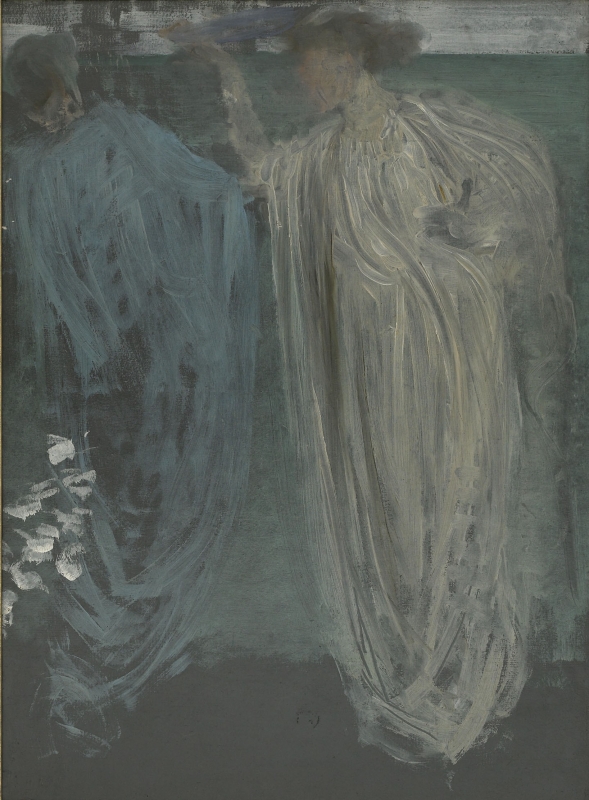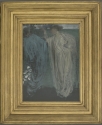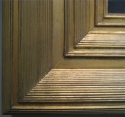Composition
r.: A group of figures; v.: Figure [M.0341], one of many figure studies for the 'Six Projects', may relate to this oil.
Technique
It was painted quickly, with bold, flowing strokes of a broad brush, on a dark grey ground. The paint is fairly thin, and sometimes the brush was almost dry of paint. Many changes to the figures were indicated by pentimenti. The end of the brush or palette knife was used to draw lines through the paint on the robes of the figure at right. An area between the heads appears to have been scraped down. The white blossom is indicated by curious blob-like shapes, possibly done with the square tip of a bristle brush.
Conservation History
For some time Whistler had five of the 'Six Projects' hanging in his dining room in Cheyne Walk. In June 1892 they were cleaned and varnished by Stephen Richards (1844-1900), his picture restorer in London. Whistler then asked David Croal Thomson (1855-1930) to retrieve them from Richards and send them to him in Paris, 'I want my small pictures that you gave him to clean and varnish ... the sketches that used to hang in the dining room, Cheyne Walk.' 1
However, when they arrived he wrote to Richards from Paris:
'I have just received the five small paintings on millboard - (sketches of figures & sea) - that you have cleaned & varnished for me. They look pure and brilliant as on the day they were painted! -
But while you were about it, I wish enough you had seen to the condition of their backs - They were put down upon other cardboards some time ago, and they are all loose and bent about now … Also how is it that they come back to me without their frames? ...
This is so unlike your usual thoughtfulness and great care! I was horrified! However happily they are unharmed.' 2
Frame
For some time between 1890 and 1892 Whistler had the so-called 'Six Projects' (actually five!) hanging in his house in Cheyne Walk, although they were not exhibited. The five ' Projects' were certainly framed by 1892, when they were cleaned and varnished by Stephen Richards (1844-1900), but returned to the artist, as he complained 'without their frames.' 3
The current Grau-style frame dates from after the painting was bought by C. L. Freer in 1903. It is of similar construction to the frames on the other 'Projects'. It was certainly on the frame by 1904, as seen in the photograph above. 4
Last updated: 25th November 2020 by Margaret










